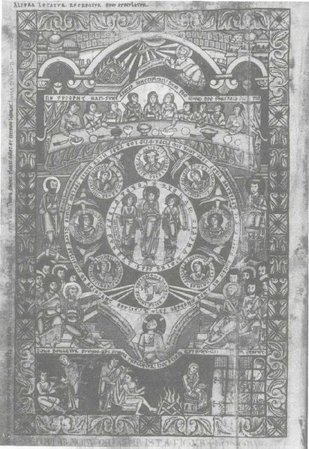|
This section contains 5,759 words (approx. 20 pages at 300 words per page) |

|
SOURCE: An introduction to The Book of Job, T. & T. Clark, 1913, pp. 1-30.
In the following excerpt from the introduction to his critical study The Book of Job Interpreted, Strahan interprets The Book of Job as a visionary author's response to an era of change in Israel which called for clarification and strengthening of the nation's theology, theodicy, and morality, particularly in regard to the problem of human suffering.
Pervaded by the thought and feeling of a period in some ways singularly resembling our own, the Book of Job is the most modern of all Hebrew writings, though some readers may naturally find themselves more at home in Ecclesiastes. The post-exilic age which produced the great drama of spiritual doubt transcended by faith was, on the one hand, heavily oppressed by that increase of knowledge
 Pictorial exegesis of The Book of Job from the Floreffe Bible, c. 1155.
Pictorial exegesis of The Book of Job from the Floreffe Bible, c. 1155. |
This section contains 5,759 words (approx. 20 pages at 300 words per page) |

|


